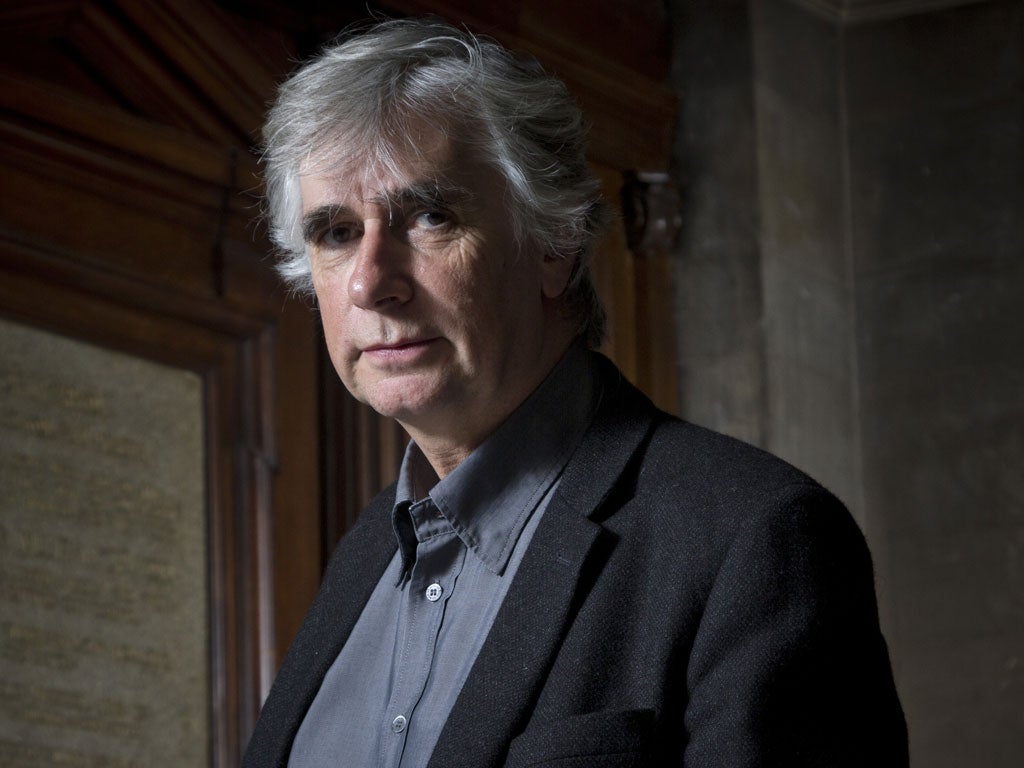Phil Redmond: 'The lesbian kiss got C4 most attention'
The writer of 'Brookside' and 'Grange Hill', tells Paul Bignell how the channel – 30 years old this week – sold out

It started with a kiss. More specifically an on-screen; pre-watershed, lesbian kiss. Controversial and ground-breaking in equal measure, Brookside's most famous scene made TV writer Phil Redmond the enfant terrible of television drama. But to him, even then, it was the beginning of the end - he had sold out.
As Channel 4 prepares to celebrate its 30th anniversary later this week, the writer and producer, who captured a generation with Grange Hill, Hollyoaks and Brookside, believes the channel has lost its way in its relentless quest for ratings.
Redmond, 63 – now a professor of media studies at Liverpool John Moores University – peers through a mop of salt-and-pepper hair and confides: "I've come right round to the conclusion, 30 years after the broadcaster started, it's time to ask the question: 'what is it for?'"
He has published a memoir – Mid-Term Report – to coincide with the 30th anniversary of the broadcaster and his best-known show, Brookside. Both began on 2 November 1982. The Kiss, broadcast in 1994, and the controversy caused by its airing before the 9pm watershed, is one of the pivotal moments in the book, and of the "long-form drama" (don't call it a soap), whose final episode went out in 2003. The brief smooch between Beth Jordache, played by Anna Friel, and a nanny (Nicola Stephenson) was a ratings winner – over nine million watched.
Redmond took scant delight from this. "Their [C4's] ethos had become, 'ratings are the most important thing'," he says. "Then we found the pressure was on Brookside. Although we had the Jordache [family] saga and domestic violence, what got us most attention was the lesbian kiss... we fell into the ratings trap." His fond memories of working for what he saw as a dynamic, young broadcaster with a strong public-service ethos, have soured over the years with the growing sense that C4 no longer caters for the audience it set out to serve.
"In 1982, it was very clear: Channel 4 catered for minorities and it facilitated people's ideas – they were the two key things... 30 years later: what minorities are they catering for and how are they facilitating people's ideas? That's not to say they're not doing good stuff, but they're not actually contributing anything to the social fabric. What are they doing, except just keeping themselves in a job?"
The channel started sedately enough, with the late Richard Whiteley introducing what would become the broadcaster's longest running programme, Countdown. But it was firmly committed to providing an alternative to the existing channels. This required the provision of programming to minority groups. "Then it all started to go into reality TV," says Redmond. "It was the cheap and easy thing to do and it was bringing a lot of money in."
He had started by smuggling grit into the BBC's children's schedule. Grange Hill, set in a fictional borough in north London, was considered hard-hitting when it began, in 1978.
Viewers will no doubt remember one of the strongest story lines, featuring one pupil – Zammo – strung-out on heroin. Redmond says what was important was to have teenagers believe in Zammo, so he had to show him initially getting some kind of benefit from the drug. A plot device he believes would never happen on today's anodyne shows: "On the one hand the BBC wanted to reinforce the culture of the dominant elite... for example, a teacher couldn't be called a cow. Yet, on the other, there was that almost patriarchal view of culture: we progress by knowledge exchange, so they felt obliged... to look at life and explore life."
It was this "knowledge exchange" that Redmond believes gave him the freedom to push the boundaries, particularly in the second season, when he'd secured impressive ratings.
"That's when I pushed it, as I knew it was make or break – student militancy, stuff behind the bike sheds, and the audience figures were up again. By the time we got to Zammo on heroin, they knew that with tougher programmes – provided they were well researched, realistic and truthful, the audience would grow."
Where are they now?
Paul Coia
The first voice heard on air was the presenter's. He later became a BBC1 presenter of Pebble Mill. Now a regular radio presenter on south-west London's Radio Jackie he lives in London with his wife, QVC presenter Debbie Greenwood.
Sue Johnston
The Bafta-nominated actress appeared in the first episode of Brookside, playing Sheila Grant until 1990. Most famously, she appeared as Barbara Royle in the BBC comedy The Royle Family. She now stars in Coronation Street as Gloria Price.
David Dundas
Dundas, an old Harrovian, composed the Channel 4 theme "Fourscore" which launched the channel in 1982 and was used for 10 years. Dundas, a hereditary peer, has since had his music sampled by Fatboy Slim. He lives with his wife and two children in London.
Carol Vorderman
The second woman to be seen on Channel 4, on Countdown (after a lexicographer known only as Mary), Vorderman hosted the quiz show for 26 years. She's now a co-host of ITV1 panel show Loose Women.
Join our commenting forum
Join thought-provoking conversations, follow other Independent readers and see their replies
Comments